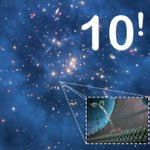We are an intelligent species and the use of our intelligence quite properly gives us pleasure. In this respect the brain is like a muscle. When we think well, we feel good. Understanding is a kind of ecstasy.Well said! (BTW, here is some context of this quote.)
On the other hand, according to Bertrand Russell,
Many people would sooner die than think. In fact, they do so.So which way are you going? ;-)
Computer scientists sometimes venture into a Theory of Everything.
More specifically, in A Computer Scientist's View of Life, the Universe, and Everything, Jürgen Schmidhuber asks Is the universe computable?. He then goes on to chat about perceived and true randomness, life, generalization, and learning in a given universe.
To wet your appetite, let me just quote his paragraphs on philosophy at the end of the paper (most of the paper is quite technical in fact):
Life after death. Members of certain religious sects expect resurrection of the dead in a paradise where lions and lambs cuddle each other. There is a possible continuation of our world where they will be right. In other possible continuations, however, lambs will attack lions.
According to the computability-oriented view adopted in this paper, life after death is a technological problem, not a religious one. All that is necessary for some human's resurrection is to record his defining parameters (such as brain connectivity and synapse properties etc.), and then dump them into a large computing device computing an appropriate virtual paradise. Similar things have been suggested by various science fiction authors. At the moment of this writing, neither appropriate recording devices nor computers of sufficient size exist. There is no fundamental reason, however, to believe that they won't exist in the future.
Body and soul. More than 2000 years of European philosophy dealt with the distinction between body and soul. The Great Programmer does not care. The processes that correspond to our brain firing patterns and the sound waves they provoke during discussions about body and soul correspond to computable substrings of our universe's evolution. Bitstrings representing such talk may evolve in many universes. For instance, sound wave patterns representing notions such as body and soul and ``consciousness'' may be useful in everyday language of certain inhabitants of those universes. From the view of the Great Programmer, though, such bitstring subpatterns may be entirely irrelevant. There is no need for Him to load them with ``meaning''.
Talking about the incomputable. Although we live in a computable universe, we occasionally chat about incomputable things, such as the halting probability of a universal Turing machine (which is closely related to Gödel's incompleteness theorem). And we sometimes discuss inconsistent worlds in which, say, time travel is possible. Talk about such worlds, however, does not violate the consistency of the processes underlying it.
Conclusion. By stepping back and adopting the Great Programmer's point of view, classic problems of philosophy go away.
Hmm... go away? I'm reminded of some Wittgenstein quotes here:
Das Rätsel gibt es nichtand
Philosophy is a battle against the bewitchment of our intelligence by means of languageOh no! I'm puzzeled and bewitched already ...

No comments:
Post a Comment